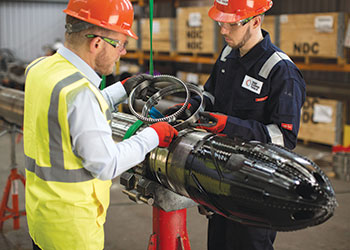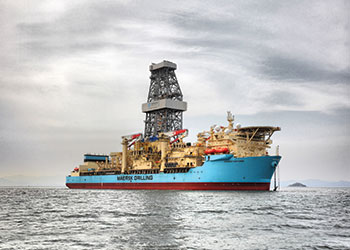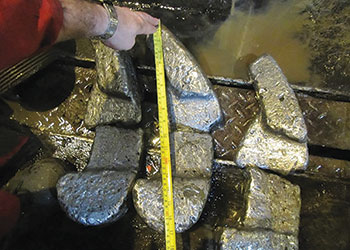
 Maersk Drilling supports the Paris Agreement ambitions
Maersk Drilling supports the Paris Agreement ambitions
The target, which places the company as a leader among drilling contractors, includes initiatives such as the first-ever rig to operate on shore power and the upgrade of two of the world’s largest jack-ups to hybrid, low-emission rigs
As part of an overall sustainability strategy, Maersk Drilling has set an ambitious target of lowering the intensity of CO2 emissions from its drilling operations by 50 per cent by 2030. The target is supported by Maersk Drilling’s strategic focus on efficiency gains, which also leads to reduced CO2 emissions.
'Climate change is one of the greatest challenges facing our society today, and we want to do our part in addressing this. The global demand for energy is rising and the expert consensus is that renewable energy will not be able to replace all traditional energy production within the foreseeable future. Therefore, the answer must be to provide affordable energy, including oil and gas, while keeping CO emissions under control. Our contribution to a sustainable energy future is to significantly reduce emissions from our operations and to explore ways to store CO,' says CEO Jorn Madsen.
The reduction target will place Maersk Drilling as a leader among drilling contractors, and initiatives so far include the first-ever rig to operate on shore power and the upgrade of two of the world’s largest jack-ups to hybrid, low-emission rigs. In addition, Maersk Drilling recently announced that it has, amongst other, joined a consortium maturing one of the most progressed CO storage projects in Denmark.
Maersk Drilling’s emissions reduction target is in line with most oil and gas companies’ 2030 targets and supports the ambitions of the Paris Agreement.
'Sustainability is an area of concern, also for our customers, and by being a leader in low-emission offshore drilling, we maintain a differentiated offering which can help customers in reaching their targets. Investing in climate action is a key focus area for us and we are committed to being at the forefront, leveraging our vast experience with operating in Norway, where sustainability requirements are very high,' Madsen says.
Maersk Drilling estimates that about half the target can be achieved via further efficiency gains and known technical solutions and concepts, while the other half will be facilitated by investments in innovation in this space. The target will be measured as tonnes CO emissions relative to three parameters: contracted days, drilled meter, and revenue, with 2019 being the baseline year.
In addition to the emissions reductions target, Maersk Drilling’s sustainability strategy contains initiatives within a range of areas, including a target of increasing the share of onshore female leaders to 30 per cent across all leadership levels.
Maersk Drilling was recently awarded a three-well contract from Total E&P Angola for the 7th generation drillship Maersk Voyager, which will be employed to drill development wells in Angola’s Block 17. The three-well contract has an estimated duration of 140 days, which means that Maersk Voyager is now contracted until Q2 2021. The firm value of the three-well contract is approximately $30 million, including integrated drilling services provided.
'We are delighted to add three more wells to Maersk Voyager’s work scope in Angola where our operations were re-started in late August following a suspension period due to the restrictions imposed to combat the global pandemic. We’re happy to go back to work in collaboration with the local partners we have engaged to support the campaign,' says COO Morten Kelstrup of Maersk Drilling.
Maersk Voyager is a high-spec ultra-deepwater drillship which was delivered in 2014. It has been operating offshore Africa since 2015 and commenced operations for Total E&P Angola in January this year.























































































